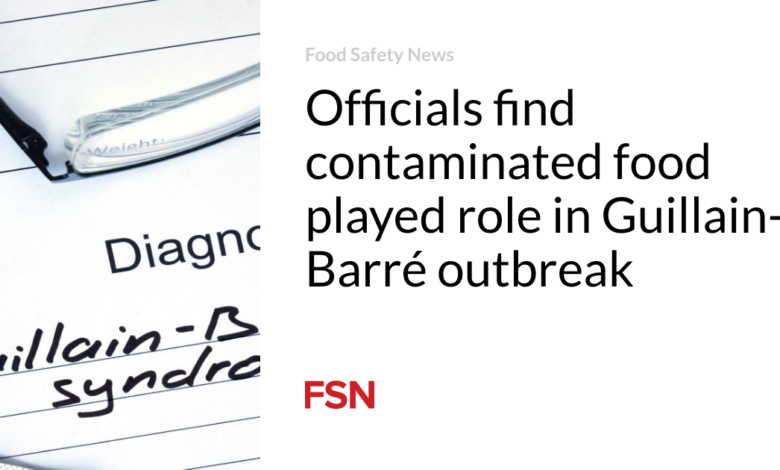Officials find contaminated food played role in Guillain-Barré outbreak

Consumption of poorly prepared food has been identified as a factor in a fatal Guillain-Barré outbreak in Guatemala.
Findings come from the results of case control studies announced by the Ministry of Public Health and Social Assistance (MSPAS) and the Guatemalan Institute of Social Security (IGSS).
Guillain-Barré syndrome (GBS) is a rare disorder where the body’s immune system damages nerves. The cause is not fully understood but the syndrome often follows infection with a virus or bacteria. Infection with Campylobacter jejuni, which causes gastroenteritis, including symptoms of nausea, vomiting and diarrhea, is one of the most common risk factors for GBS.
In total, 87 cases were reported in the outbreak, of which five died. 40 percent of patients were recorded in Cuyotenango and Samayac, in the Suchitepéquez region, and 80 percent were between 15 and 64 years old.
The first cases were detected in November 2023. As more than 40 days have passed since the last report, the red alert has been reduced to a yellow epidemiological alert, which means continuing prevention actions and surveillance for suspected cases.
Presence of Campylobacter was confirmed in some of the stool samples taken, suggesting transmission of the bacteria in food.
Dr. Óscar Cordón said studies consisted of interviews and checks through laboratory tests of patients and undiagnosed people.
“The history of gastrointestinal illness, fever and consumption of poorly prepared foods were the factors associated with the risk of presenting with the syndrome in Suchitepéquez,” he said.
Cordón added it was important to continue surveillance of the syndrome, maintain training for health personnel on diagnosis and proper management of GBS, promote good practices in food management at the community level and strengthen epidemiological surveillance of acute diarrheal diseases and Campylobacter.
Involvement of WHO
Analyzes on water and food samples in various municipalities led to closures of food establishments and reinforcement of protection measures in the population.
Evaluations are ongoing to understand more about the role of the bacteria in the risk of developing Guillain-Barré syndrome.
“The recommendation to residents is to continue with prevention measures, such as maintaining constant handwashing with soap and water, hygienic measures in food preparation, consuming boiled or chlorinated water and avoid mixing cooked and raw foods,” said officials.
The Pan American Health Organization (PAHO), a regional office of the World Health Organization (WHO), participated in a recent press conference led by MSPAS where information on GBS was shared.
Gerardo Alfaro, PAHO/WHO representative in Guatemala, highlighted several measures including a workshop taught by professionals from the National Institute of Public Health of Peru to strengthen the capabilities of molecular diagnosis and genomic sequencing of Campylobacter.
(To sign up for a free subscription to Food Safety News, click here.)



